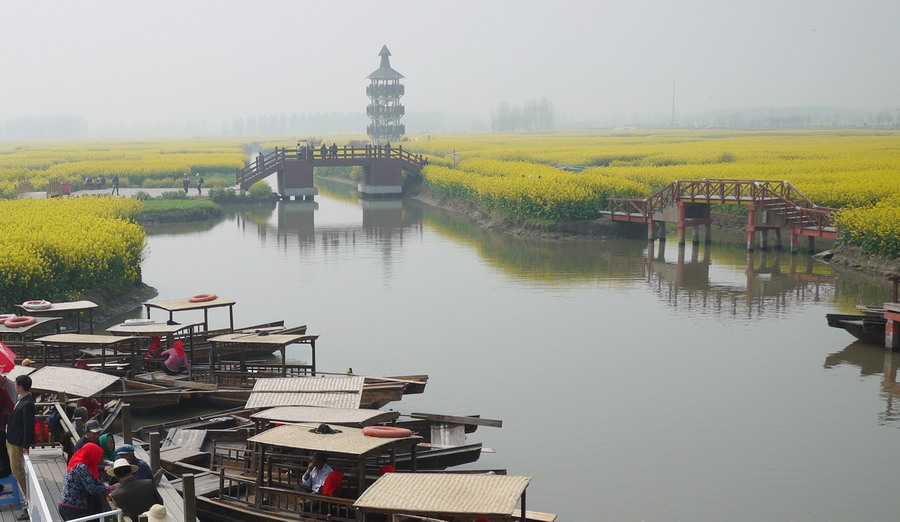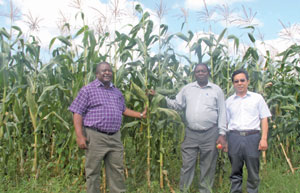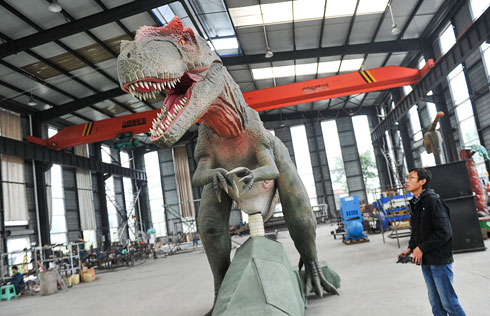Unique landscape on a slippery slope of existence
Updated: 2014-04-22 15:32 By He Yini in Jiangsu (chinadaily.com.cn)
|
 The geographical landscape, or Duotian agrosystem that is unique in China and probably in the world, manifests itself of a primitive farming practice that has been going on for thousands of years, Xinhua city, Jiangsu province, April 9, 2014. [Photo by He Yini / chinadaily.com.cn] |
This may sound magic, but the reality is probably more poetic and stunning. Hundreds of small pieces of land, square or round, wide or narrow, are standing separately above water, just high enough not to be drowned, with endless rapeseed flowers blossoming to your heart's content.
Surrounded by deep water, boat is the only means of transportation where local farmers have been living and working for generations, day in and day out. They need to add as much mud to the stacks every year to make up for land erosions caused by water waves, human activities, etc.
The geographical landscape, or Duotian agrosystem that is unique in China and probably in the world, manifests itself of a primitive farming practice that has been going on for thousands of years.
As a special form of arable lands situated in Xinghua city, Jiangsu province, Duotian has been considered a living fossil for agricultural experts from home and abroad.
"Traditional farming practices are of high value, historically as well as culturally, to modern agricultural development," said Wang Siming, a professor at Nanjing Agricultural University.
"But they are increasingly on the wane amid industrialization and urbanization that is at the same time having a toll on our ecological environment," he added. "These lands, if left untended by the government and the people, could probably disappear before we know it."
China has been stepping up efforts to protect its traditional agricultural systems in the past few years. In May 2013, the country released a list of 19 sites, including Xinghua Duotian agro-system, which were listed as the Chinese Important Agricultural Heritage Systems.
"Agriculture is the foundation of social development. Traditional family farming practices should be repositioned at the center of agricultural, environmental and social policies," said Li Wenhua, an academician of Chinese Academy of Engineering, or CAE.
|
 |
 |
 |







